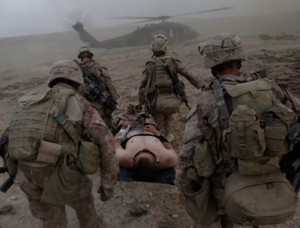This post, entitled Assessing Counter-Terror Since 9/11 is worth reading. But one line jumped out at me.
Successful terror attacks require real skills at surveillance, security, and usually explosives manufacture. None of these skills are easy to acquire. Most successful attacks have involved someone with real training, usually acquired in Pakistan. By monitoring movements to and from Pakistan (and other areas that could be training centers) and extensive sharing between national intelligence agencies suspect activity can be identified and monitored.
(emphasis added) It is axiomatic that terrorism usually requires state sponsorship to be effective, and this post makes a strong case that this axiom has ongoing validity — and that the worst state sponsor is Pakistan. (This is consistent with other things I have read.) In fact, according to this post, it is so bad that you can monitor terrorists generally by monitoring who comes and goes from Pakistan. That, if true, is intolerable.
I had a good visit this weekend with our colleague Zenpundit. One of the things we talked about was the seeming lack of strategy underlying American policy. It has been spasmodic and reactive. We contrasted the current “three wars” — The Global War on Terror, the war in Iraq and the war in Afghanistan, none of which have a goal or an articulated means to reach that goal (i.e. a strategy) which is worthy of the name.
Contrast this with two very successful strategies. In World War II our strategy was “Germany First”. Two words, and all else flowed from it. In the Cold War our strategy was “Containment” or “Containing Communism”. This over-arching aim held through thick and thin and we eventually succeeded in our aim of containment.
In the current conflict we seem to be floundering around. The goal in both Iraq and Afghanistan is to arrange things so we can leave. In other words, we are admitting that we should not have invaded either place and that we cannot accomplish much of anything of value by being there. We just don’t want to make things worse by the way we leave. This reminds me of the sort of prestige-based decision-making that kept us in Vietnam. The current vision of population-centric COIN appears to be way too expensive and time consuming to be worth doing on a big scale in Afghanistan. Gen. Krulak’s recent letter to George Will is one example of a proposed different course. As Afghanistan becomes “Obama’s War” I hope we will see some creative thinking.
In the meantime, I am thinking more and more that the focus should be on state sponsors of terrorism. The main sponsor of terrorism is Pakistan. Of course, there is no “Pakistan” but rather factions within Pakistan. Nonetheless, if we are going to focus our military and political energy anywhere, it should be on ending Pakistan as a source of terrorism.
I am not yet committed to the idea, but I suggest “Pakistan First” as our strategy. I do not mean conquer and occupy Pakistan. I mean compel the government there, but whatever combination of carrots and sticks, to stop supporting terrorism and to actively work to stop terrorism originating within its borders.

